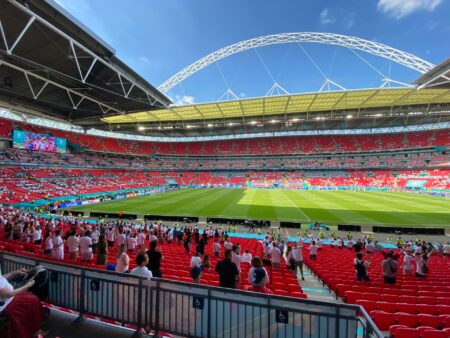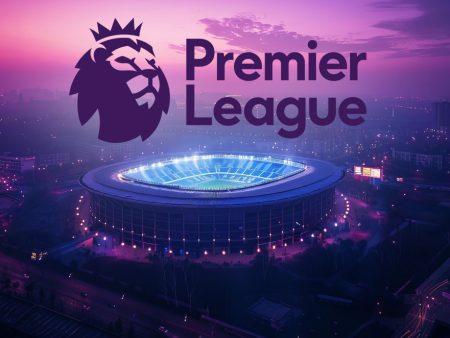Exploring the Financial Landscape: How Premier League Clubs Make Money

How do Premier League clubs make money?
As we know, football is most famous sport in the world. Premier League clubs generate revenue through various sources, including matchday revenue, broadcasting rights, and prize money commercial revenue. The league table also contributes different profit per season. Today we’ll make a review about the EPL 2022 / 2023 matches update and will find out how the English Premier league make money according to their position in the league table.
Now, let’s find out how the richest clubs in English football league clubs make their money and what is the matchday income.
Matchday revenue
Matchday revenue plays a significant role in a English top-flight Premier League club’s income and money earned. It includes revenue generated from home games, where fans flock to the stadiums to support their favorite teams.
Broadcasting rights
Broadcasting rights are another major source of income for Premier League clubs. These clubs negotiate lucrative broadcasting deals with TV networks, allowing them to broadcast matches and generate substantial revenue.
Commercial revenue
Commercial revenue, also known as commercial partnerships, contributes significantly to the financial success of Premier League clubs. These clubs enter into various sponsorship deals with companies, sell merchandise, and establish brand partnerships to increase their revenue streams.
What are the sources of income for Premier League clubs?
Premier League clubs rely on three primary sources of income: matchday revenue, money from TV, broadcasting rights, and commercial revenue.
Matchday revenue
Matchday revenue is earned through ticket sales, hospitality services, and merchandise sales during home games. Premier League clubs with larger stadiums, such as Manchester United and Liverpool, have the potential to generate significant matchday revenue due to their large fan bases and the iconic status of their stadiums, like Manchester United’s Old Trafford.
Broadcasting rights
Broadcasting rights constitute a substantial portion of a Premier League club’s income. TV networks pay enormous sums to secure the rights to broadcast Premier League matches, both domestically and internationally. The broadcasting revenue is shared equally among all 20 Premier League clubs.
Commercial revenue
Commercial revenue encompasses various revenue streams, including sponsorship deals, merchandise sales, and brand partnerships. Premier League clubs like Manchester City and Chelsea secure lucrative sponsorship deals with big-name companies, further boosting their financial success.
How does matchday revenue contribute to a Premier League club’s income?
Matchday revenue is a significant contributor to a Premier League club’s income.
Stadium
The stadium plays a crucial role in generating matchday revenue. Premier League clubs invest heavily in building and maintaining state-of-the-art stadiums to attract fans and enhance the matchday experience.
Ticket sales
Premier League clubs generate substantial revenue through ticket sales. Fans eagerly purchase tickets to watch their favorite teams compete in the prestigious league. This revenue is further increased when clubs participate in high-profile matches, such as the Champions League.
Hospitality and merchandise sales
Premier League clubs offer hospitality services and sell merchandise during home games. Luxury boxes, VIP experiences, and club merchandise contribute to the matchday revenue, providing fans with additional opportunities to support their beloved clubs.
What role do broadcasting rights play in the finances of Premier League clubs?
Broadcasting rights significantly impact the financial success of Premier League clubs.
TV revenue
TV networks pay massive amounts of money for the exclusive rights to broadcast Premier League matches. This TV revenue forms a crucial part of a club’s income and is distributed equally among all Premier League clubs.
Broadcasting deals
Premier League clubs negotiate broadcasting deals with networks, ensuring widespread coverage of their matches. These deals not only generate substantial income but also increase the league’s popularity globally.
International broadcasting
Premier League matches are broadcasted internationally, allowing clubs to capitalize on global fan bases. The international broadcasting rights fetch significant revenue, strengthening the financial position of English football clubs.
How does commercial revenue impact the financial success of Premier League clubs?
Commercial revenue plays a vital role in driving the financial success of Premier League clubs.
Sponsorship deals
Premier League clubs secure lucrative sponsorship deals with companies across various industries. These partnerships not only bring in substantial revenue but also enhance the clubs’ brands and global visibility.
Merchandise sales
Club merchandise, including jerseys, scarves, and other memorabilia, is highly sought after by fans worldwide. Premier League clubs capitalize on this demand, generating significant revenue through merchandise sales.
Brand partnerships
Premier League clubs form strategic partnerships with top brands, enabling them to leverage each other’s influence and reach. Such partnerships not only bring in additional revenue but also provide clubs with unique marketing opportunities.
How Do Premier League Clubs Make Money
The Premier League is a prestigious football competition that’s renowned around the world. But how do Premier League clubs make money? In this article, we’ll explore the various ways that clubs generate their income, including TV rights, sponsorship, merchandise, matchday revenue, and player trading. We’ll also look at how the pandemic has affected club finances and what the future might hold. So, if you’re curious about the finances of the Premier League, then read on to find out more.
TV Rights
You may not be aware, but television rights are a major source of revenue for Premier League clubs. Every season, clubs receive a sizeable sum from broadcast deals, allowing them to invest in better players and infrastructure. The money is split into two categories: domestic and international broadcast fees.
Domestic broadcast fees are shared across all 20 clubs, whereas international broadcast fees are split depending on a club’s performance in the previous season. This means that the more successful clubs can receive more money from international broadcast deals. Clubs also have individual deals with broadcasters, which provides additional revenue. Overall, television rights make up a significant portion of Premier League clubs’ total income.
Sponsorship
Sponsoring a Premier League team can be a lucrative investment, offering an exciting way to connect with a passionate fanbase. Companies pay for the right to have their logos and brands displayed on team uniforms, stadium walls, and during press conferences. Sponsorships can range from a simple logo placement to exclusive marketing campaigns. Premier League clubs also offer sponsors the chance to use their players and facilities in promotional activities.
This helps sponsors create a strong connection with their target audience. In addition, sponsors are often given access to VIP experiences such as matchday hospitality and behind the scenes tours. This can be a great way for brands to get closer to their customers. Sponsorship is an important source of revenue for Premier League clubs, allowing them to invest in their teams, facilities and youth academies.
Merchandise
Shopping for Premier League merchandise can be a great way to show your support for your favorite team and make a statement. Merchandise sales are an important source of income for Premier League clubs, and the range of items available continues to grow. From jerseys and hats to mugs and keychains, fans can find all sorts of items to show their loyalty. Clubs also offer exclusive items to their members, such as limited edition shirts and special discounts.
Clubs also sell merchandise at retail outlets and online stores, allowing them to expand their reach and generate more revenues. Merchandise sales are an important way for clubs to engage with their fans and generate more income. In addition to merchandise, clubs also earn money from licensing deals with popular brands, which allows them to use their logos and designs on a range of items. The popularity of the Premier League also means that clubs can charge a premium for their merchandise, allowing them to increase their revenues.
Matchday Revenue
Attending Premier League matches is a great way to show your support and become part of the action. Matchday revenue is an important source of income for Premier League clubs. This money comes from tickets and hospitality packages, as well as other activities related to matchdays, such as food and beverage sales, and merchandising. Ticket prices vary depending on the team and the location of the match, but they often range from £20-£50 per person for a single match. Hospitality packages can be even more expensive. Aside from ticket sales, Premier League clubs also make money from food and beverage sales, parking, and merchandise sales.
Clubs often partner with vendors to provide food and drinks in the stadium, and they charge a fee for parking. As for merchandise, clubs make money by selling official club merchandise such as jerseys, hats, and other memorabilia. Matchday revenue is an important source of income for Premier League clubs, and they are always looking for ways to maximize their profits from matchdays. This includes selling tickets at the right price, offering attractive hospitality packages, and partnering with vendors to provide great food and beverage options. In addition, clubs must work hard to ensure that their merchandise is attractive and of high quality in order to maximize sales.
Player Trading
One way Premier League teams generate income is through player trading, which involves buying and selling players to and from other clubs. Teams can receive transfer fees for sending a player to another team, and they may also benefit from the wages the player had been receiving. In addition, teams can pay a fee to acquire a player from another team.
This fee is typically based on the player’s experience, abilities, or the amount of money the team is willing to pay. Player trading can be a lucrative business for Premier League clubs, as they can make large profits from the fees from transferring a player. Furthermore, teams can often benefit from the sale of a player due to the wages they are no longer paying. By trading players, teams can also strengthen their squads and increase their chances of success.
Conclusion of How do Premier league clubs make money
Premier League clubs make money through a variety of sources, such as TV rights, sponsorship, merchandise, matchday revenue, and player trading. Each of these sources can provide a significant source of income for the clubs, allowing them to stay competitive and grow their fan base. The money generated from these sources has allowed the Premier League to become one of the most successful and popular football leagues in the world. Therefore, it is clear that the clubs are making the most of their opportunities to generate revenue and remain a successful force in the world of football.









